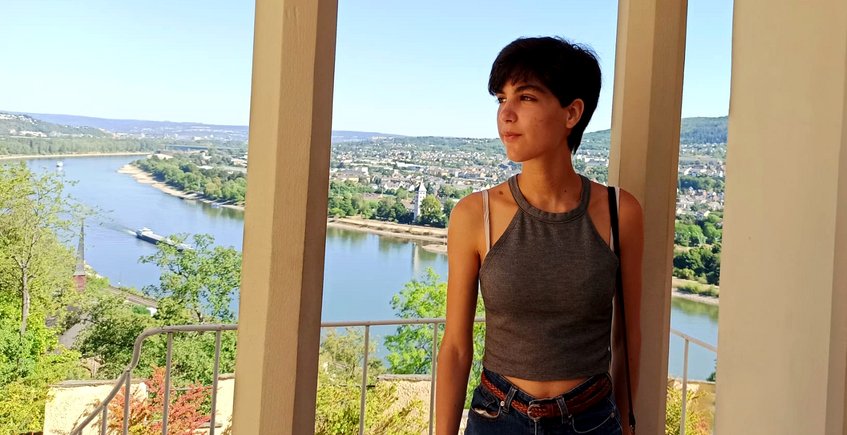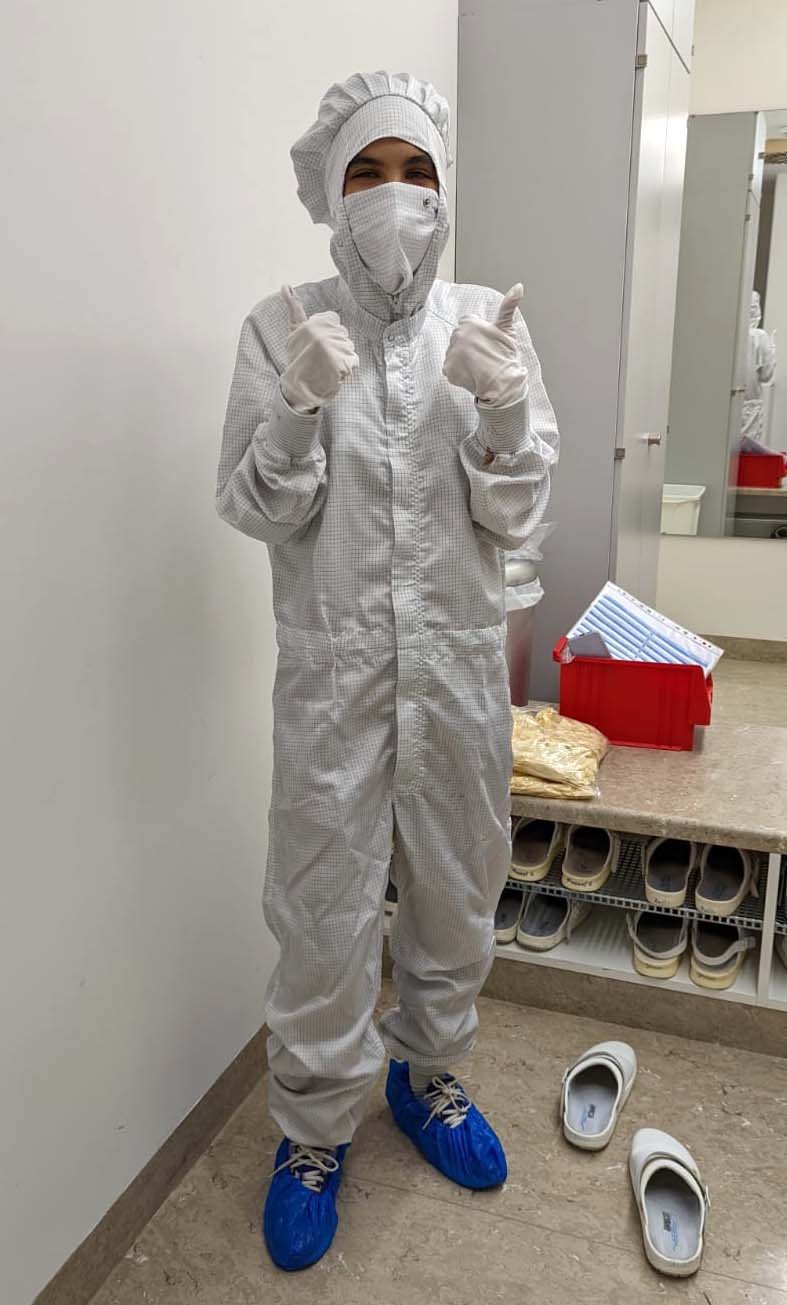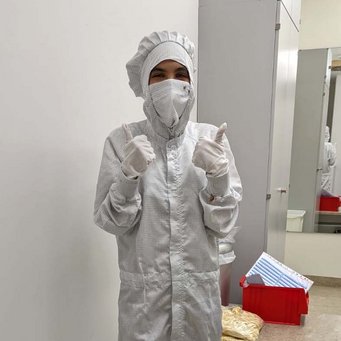
Interview with URO participant Irene Pellini
“The international environment and the experience of living in a foreign country have deeply contributed to my personal development” says Irene Pellini who did her Undergraduate Research Opportunity - internship in the group of MtL Fellow Joachim Spatz. We are happy to give you some insights into Irene’s internship experience, her personal enrichment and the decision to come to Germany.
How did you come across the Matter to Life URO program?
I was looking online for internship opportunities for undergraduate students related to the field of biophysics and when I stumbled across the Matter to Life URO program I immediately knew it was the one for me: not only does it provide the opportunity to become part of the research of one of the leading laboratories in the world, but it also provides the chance to engage in interdisciplinary research combining physics, chemistry, biology and medicine.
Why did you decide to go to Germany for your research internship?
In the first place, I wanted to go abroad to challenge my limits and immerse myself in a foreign country. Secondly, I was well aware of the fact that the Max Planck Institutes in Germany are top-of-the-line organisations when it comes to equipment and quality of the research. Nonetheless, I was very surprised by the amount of different technologies available in the labs and by their outstanding performances. Last but not least, the international environment that the institutes offer really captivated me as I think that the confrontation with people coming from different backgrounds is beneficial not only to personal development, but also to research outcome.
What are you currently studying and why are you interested in interdisciplinary research?
I am currently studying physics at a bachelor level. Additionally, I am also enrolled in an interdisciplinary program which has given me the opportunity to appreciate the strengths of cross-sectional studies. Moreover, I have always been interested in investigating the interface between physics, biology and chemistry. These fields, indeed, are way more interlaced than one would think at first glance, and in my experience I´ve found out that often to better understand one of them it is convenient to use the tools provided by another.
What were the main aspects of your research during the internship?

I have carried out the internship at the Max Planck Institute for Medical Research and I have been involved in two different research projects: In one I was assisting a PhD student and the project consisted of the development and enhancement of porous hollow microcapsules to capture motile bacteria and their combination with gold nanorods to kill the pathogens. Gold nanorods, indeed, are able to locally produce heat when irradiated with near infrared light and can therefore kill bacteria. The other project concerned the development of a microfluidic device able to register small changes in pressure utilizing a train of beads and a water/oil interface. In this case, after an introduction to the techniques I was meant to use, I was left more or less on my own to follow through with the research, so I was able to enjoy how it feels to develop and carry out a project independently, although still benefiting from precious guidance.
What surprised you during your internship?
As I´ve already mentioned, the number of different devices available and how easily I could get access to them has really surprised me: I had never even slightly imagined how many different techniques are needed to properly carry out scientific research. I was also positively struck by the large number of collaborations and shared projects between the people of the group: When I stumbled across issues in the research I could always ask and obtain help from someone more experienced in the field. In general, partnerships between group members and even between different groups are strongly encouraged and welcomed.
What did you gain from the internship?
I have surely gained a deeper knowledge in the fields of chemistry and microfluidics alongside with the ability to use the most up-to-date equipment. The international environment was also very beneficial to me: I was able to compare myself and my way of reasoning with people from all over the world and to appreciate and treasure the cultural and scientific differences between us. Last but not least, the insight I have experienced in the life of a researcher has led me to develop the strong yearning to pursue a studying pathway leading to scientific research in a multidisciplinary sphere.
